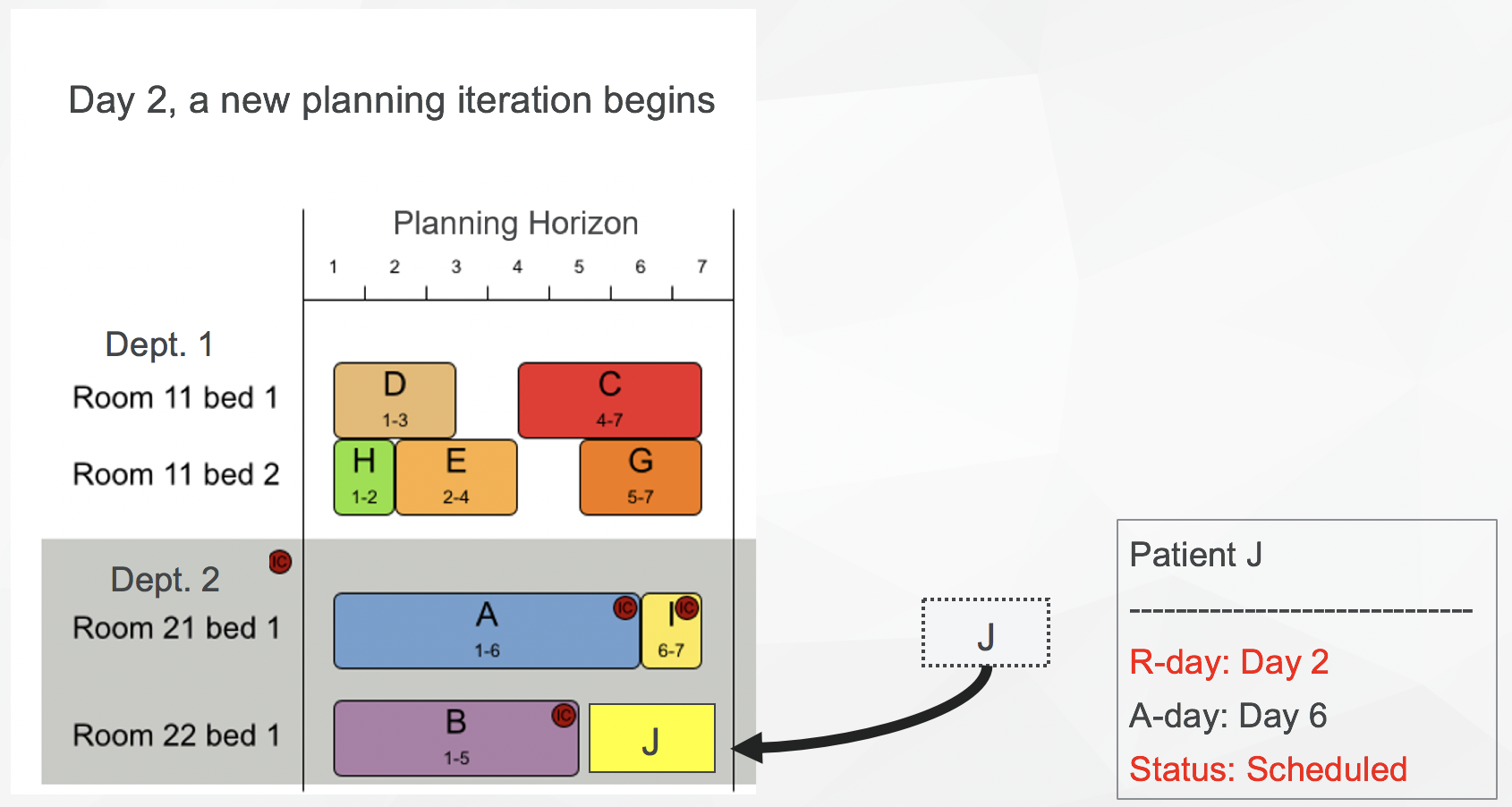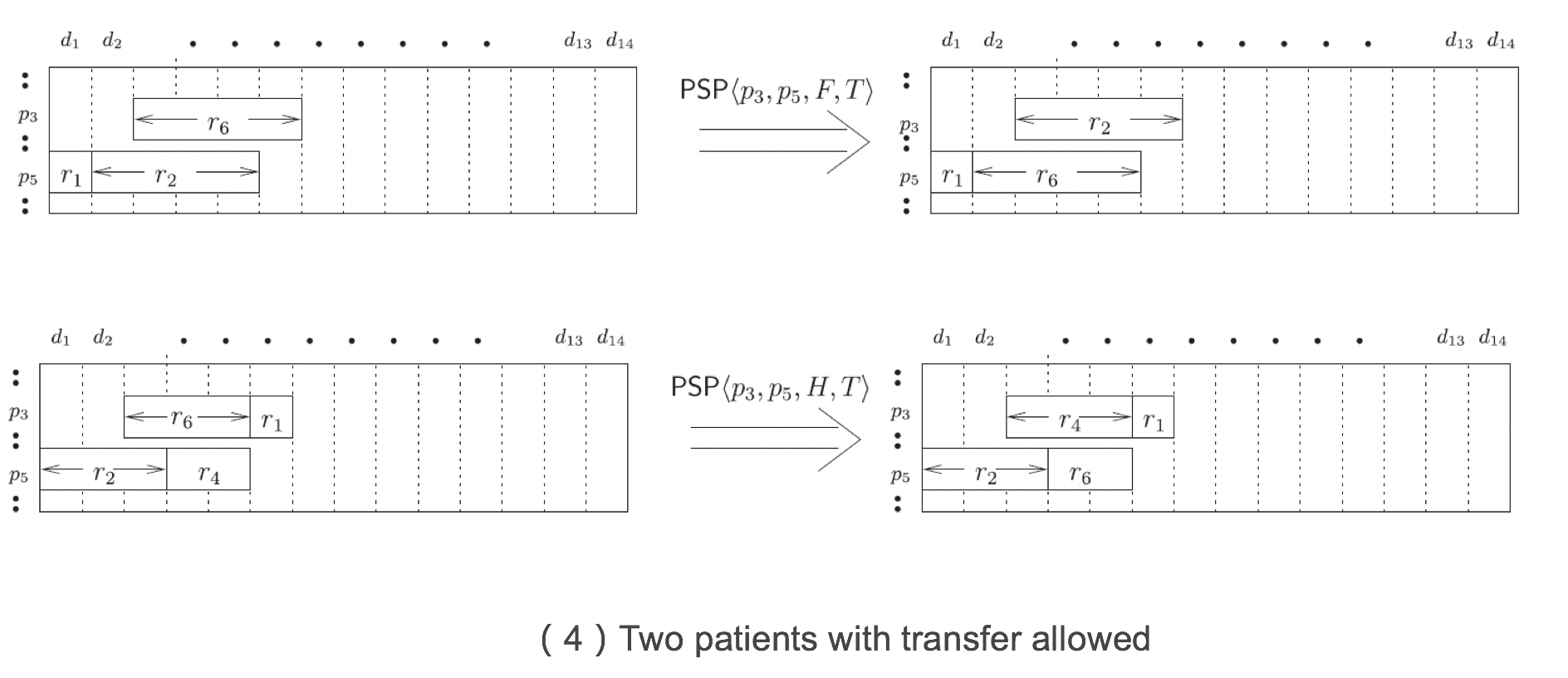Metaheuristics Algorithm for Dynamic Patient Admission Scheduling
Dynamic Patient Wards Allocation problem is a NP-Complete combinatorial optimization problem that supports the decision-making process in hospitals, and is a dynamic version of the Patient Admission Scheduling (PAS) problem. The Dynamic PAS extends the original problem boundary by taking into consideration the possibility of admission delay and the risk of overstaying. The goal is to design a combinatorial optimization algorithm to minimize the total admission cost within a given planning horizon.
What does it mean to be “dynamic”?
- Each patient has a registration day, an admission day, and a discharge day. If a patient is not registered into the planning system, she will not be in the scope of planning.
- The allocation is flexible for any patient before she is admitted to hospital.
- The admission day and the discharge day of any patient are flexible. A patient can delay her admission and can extend her stay in the hospital.


The mathematical model is to build a target function with penalty (costs) for all patients during the whole planning span.


The neighbor structure includes three fields.
-
Patients without any location transfer.

-
Location transfer is allowed.


-
Location transfer is allowed and patients may delay their admission.
